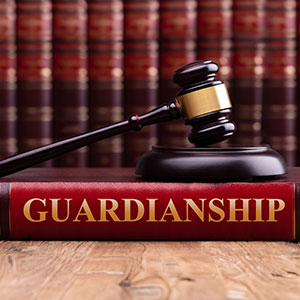
Once you or your parents reach senior status, you really can’t afford to put it off any longer. Unfortunately, without proper planning, seniors can lose everything, even if they have family to look after them. Having a will isn’t enough. More and more, the media is highlighting stories of seniors being taken advantage of, and even being targeted by unscrupulous professional guardians. While planning for your incapacity and death can be scary, it’s even scarier to think of all the horrible things that can happen to your family if don’t have the right planning in place. Here are a some of the most common mistakes that seniors make: Mistake #1: Not Creating Advance Medical Directives In your senior years, health care matters become much more relevant and urgent. At this age, you can…Read More

Since estate planning involves thinking about death, many people put it off until their senior years, or simply ignore it all together until it becomes too late. This kind of unwillingness to face reality can create a major hardship, expense, and mess for the loved ones and assets you leave behind. While not having any estate plan is the biggest blunder you can make, even those who do create a plan can run into trouble if they don’t understand exactly how estate plans work. Here are some of the most common mistakes people make with estate planning: 1. Not Creating A Will While wills aren’t the ultimate estate planning tool, they are one of the bare minimum requirements. A will lets you designate who will receive your property upon your death, and it…Read More

If you are considering a divorce, it’s critical to understand the impact of your divorce on what would happen in the event of your incapacity or death, either during the divorce or after. Until the Final Judgment is signed by the judge, without modifications to your estate planning, the soon to be ex-spouse may still have decision making authority even though there is a divorce pending. Unfortunately, most divorce lawyers don’t give much thought to incapacity or death, simply because they do not have training on these issues specifically and it doesn’t seem like a pressing issue when they’re advising you through your divorce. That’s why it’s important for you to seek our advice at the beginning of the divorce process. Here are some things to keep in mind: As soon as you…Read More

Our Lives Are On Our Smartphones The data we keep on them has great sentimental value because they’re every parent’s primary way of capturing precious family memories, such as videos of an adorable child singing pop songs in the car. But our smartphones also store other sensitive information that is valuable to hackers, like passwords and financial information. What happens when we don’t have access to our smartphones for an extended period of time? (Or if something happens to us and someone else can’t access something important on our phones?) We feel powerless. We might even freak out. Recently, my iPhone broke. I had dropped the phone too many times and it was on its way out anyway. But I wasn’t ready. I thought I had more time. And worst of all, I…Read More

Maria Shriver knows the devastation of Alzheimer’s disease firsthand. Her beloved father Sargent Shriver, founder of the Peace Corps and one-time candidate for Vice President of the United States, died of the disease in 2011 after being diagnosed in 2003. Often called “the long goodbye,” Alzheimer’s disease affects more than five million Americans and its prevalence will continue to grow with the aging population. Shriver recently reported for NBC.com on the five things Alzheimer’s or dementia victims should do once a diagnosis has been confirmed: Execute powers of attorney and advance medical directives. These allow for the designation of a trusted person or persons to make financial and medical decisions before cognitive impairments worsen. Create a will. If you do not have a will that designates how your assets will be distributed upon…Read More

Picture this: At Thanksgiving, you have your eye on that last piece of pie. You can practically taste it. As you reach for it, someone else grabs it and there’s a tug of war. Do you share it? Does one of you give up and find another dessert? Does someone intervene and decide for you? Are you in a family that will laugh this off? Or is there some drama? When the stakes are high and there’s money and property involved, the resulting conflict is enough to ruin anyone’s appetite. Picture this: You’re in a blended family where there’s Mom, Step-Dad, and Mom’s kids from her first marriage. Mom dies without a Will. Step-Dad is distraught, but takes comfort in knowing that the house is almost paid off. There’s about $200,000 of equity.…Read More

Passing your family heirlooms to your family should be a welcome and sacred tradition. But sadly, for many families it can cause a lot of drama. Did you know that your family is more likely to fight over sentimental items instead of money? If you don’t want that to happen in your family, here’s what you can do: 1. Add Specific Designations To Your Will And/Or Trust Typically, a Will or Trust will specify that all personal property goes to the “residue” and is split equally between all heirs. But you may want to get more specific with items that are already family heirlooms or that you want to become family heirlooms. All too often children will discover after Mom or Dad has passed that an item was promised to more than one…Read More

Is it time to have “the talk” with your kids about your estate planning? It can be hard to have these conversations with your family. Here are some tips to make it easier. Preparation Is Key 1. When You Choose Important Decision Makers, Make Sure You Match The Skills Of The Person To The Job For example, the Personal Representative (also known as the executor) of a will must be able to gather assets, prepare paperwork, handle finances, and deal with potential family disputes. Don’t choose a Personal Representative that isn’t up to that job. Too often, people choose executors, trustees, guardians, and powers of attorney based on emotions or arbitrary factors, such as who is the oldest child or who might be offended if not chosen. These are difficult, demanding jobs, and…Read More

The thought of not being around to raise your children feels crushing and too awful to consider. But if you don’t name a guardian for your children and you pass away or become incapacitated while they are minors, a judge who doesn’t know you, your children or your family will decide who raises them. Families tend to fight over children, especially if there’s money involved. And what if you have family that you don’t want raising your children? How To Choose A Guardian Consider these factors when choosing candidates for guardians and back up guardians: How well the child and potential guardian know and enjoy each other Location – if the guardian lives far away, your child would have to move from a familiar school, friends, and neighborhood. If your guardian is not…Read More

Myth #1: “Estate Planning Is Only For The Very Rich Or Old.” False! You don’t need to be rich or old to start planning. That’s because estate planning is for anyone who may pass away or get really sick. And that can happen to anyone! Estate planning is about making sure that someone can manage your finances if you’re incapacitated, your health care wishes are carried out, your kids are taken care of and that your property goes to the right people. Myth #2: “Estate Planning Is Too Expensive.” False! In fact, exactly the opposite is true. In the long run, good estate planning saves both time and money. Without an estate plan, your loved ones may have to deal with confusion, undue financial hardship and family drama, in addition to probate, which…Read More
